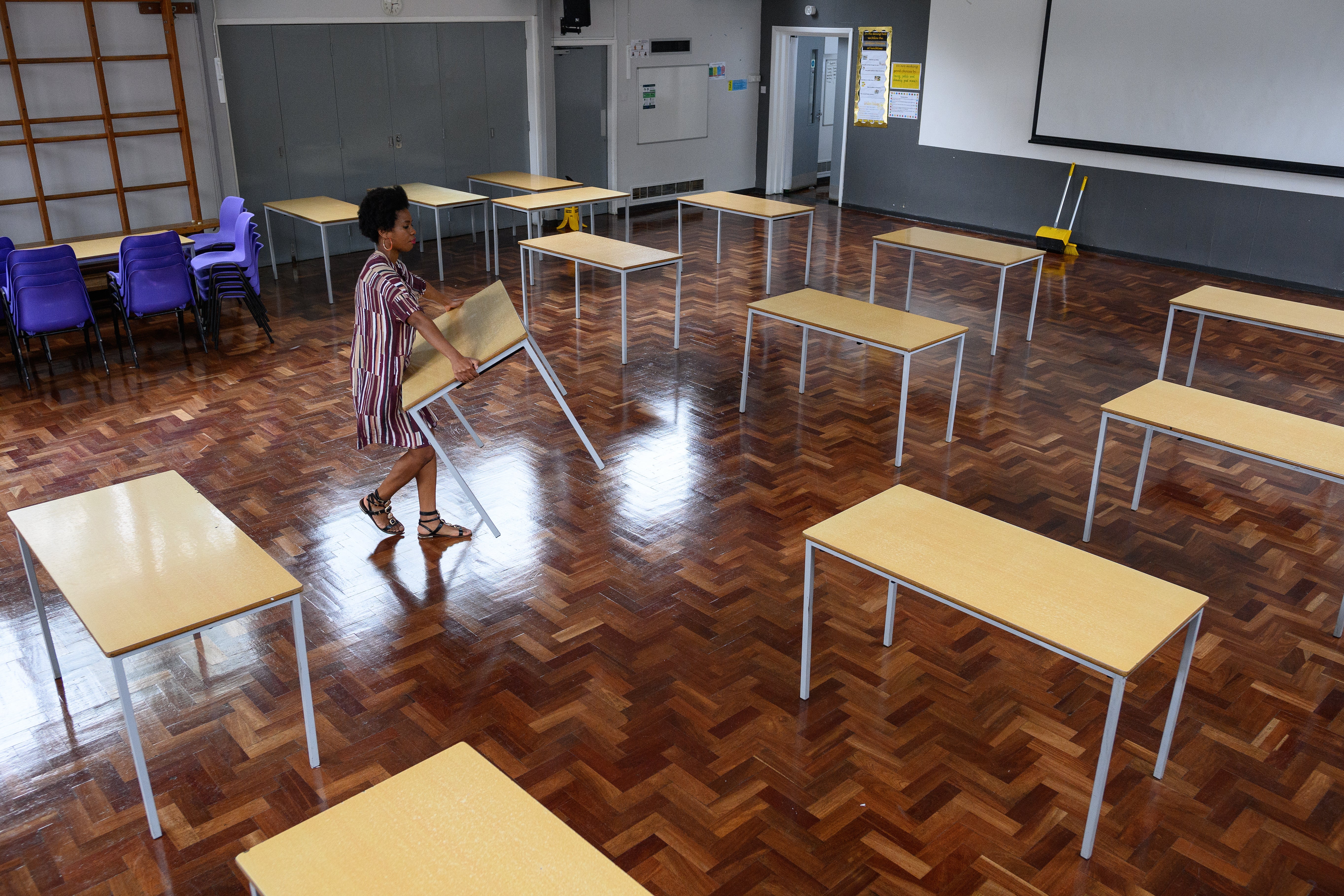Schools may not be a significant driver of Covid infections, scientists find
Researchers urge caution over lockdown restrictions being lifted

Your support helps us to tell the story
From reproductive rights to climate change to Big Tech, The Independent is on the ground when the story is developing. Whether it's investigating the financials of Elon Musk's pro-Trump PAC or producing our latest documentary, 'The A Word', which shines a light on the American women fighting for reproductive rights, we know how important it is to parse out the facts from the messaging.
At such a critical moment in US history, we need reporters on the ground. Your donation allows us to keep sending journalists to speak to both sides of the story.
The Independent is trusted by Americans across the entire political spectrum. And unlike many other quality news outlets, we choose not to lock Americans out of our reporting and analysis with paywalls. We believe quality journalism should be available to everyone, paid for by those who can afford it.
Your support makes all the difference.Schools do not play a significant role in the spread of coronavirus, according to a study published at a time when Boris Johnson prepares to decide on lifting lockdown and reopening classrooms.
Scientists at the University of Warwick said their research showed children going to school in November did not lead to wider outbreaks of the virus.
The prime minister has said no decision has yet been made on when schools might reopen to all children, although a review of restrictions has started during speculation that schools could reopen on 8 March.
Mr Johnson said the end of lockdown would be “cautious but irreversible”, with target dates for relaxing restrictions set out in a roadmap due to be revealed next Monday.
Lead researcher Dr Mike Tildesley, said: “Our analysis of recorded school absences as a result of infection with Covid-19 suggests that the risk is much lower in primary than secondary schools and we do not find evidence to suggest that school attendance is a significant driver of outbreaks in the community.”
In a briefing with journalists on Monday he warned the results were likely to be an underestimate of the true number of cases because some children may only have mild symptoms, or no symptoms at all.
On reopening schools he said: “I think with any form of relaxation we need to approach it with an element of caution. We do know that any form of reopening, even with this evidence, whether it be schools or otherwise, will result in an increase in the R number.
“There is still some uncertainty as to what the effect will be of school reopenings on the R number so I would say a cautious stepwise approach, in any setting, is really what's needed so that we can avoid a resurgence.”
The research, which looked at data on school absences in England from September to December, found cases of infection among teachers fell during the November lockdown despite schools in England staying open.
Cases in secondary school pupils increased for the first two weeks of the November lockdown in many regions before decreasing.
In December, the data showed a large rise in the number of absences due to confirmed infection in secondary schools in the southeast and London, but this was not seen in other regions or primary schools. This could be due to the emergence of a new, more transmissible variant.
Dr Edward Hill, from University of Warwick, added: “During the first two weeks of the November lockdown we observed an increase in pupil absence as a result of infection with Covid-19, yet in the following weeks the data indicates that in several regions there was no subsequent rise in Covid-19-caused teacher absence.
“It is important to note that our findings only refer to cases reported in school children and teachers, and do not provide an indication as to whether these individuals were infected within the school environment.”
He added that the risk for children was not zero and that ministers needed to consider the “trade-offs” over the risks from Covid-19 with children being away from school for a sustained period of time.
“When schools reopen it can increase mixing in other settings because parents are more likely to be able to go into the workplace and so forth. I think when any such school reopening policy happens we need to think very carefully about making sure that we can keep our mixing as low as possible in other aspects of society so that we can have schools reopen safely.
“I think we all agree that children being in school is extremely important but we want it to happen in the safest possible way.”



Join our commenting forum
Join thought-provoking conversations, follow other Independent readers and see their replies
Comments